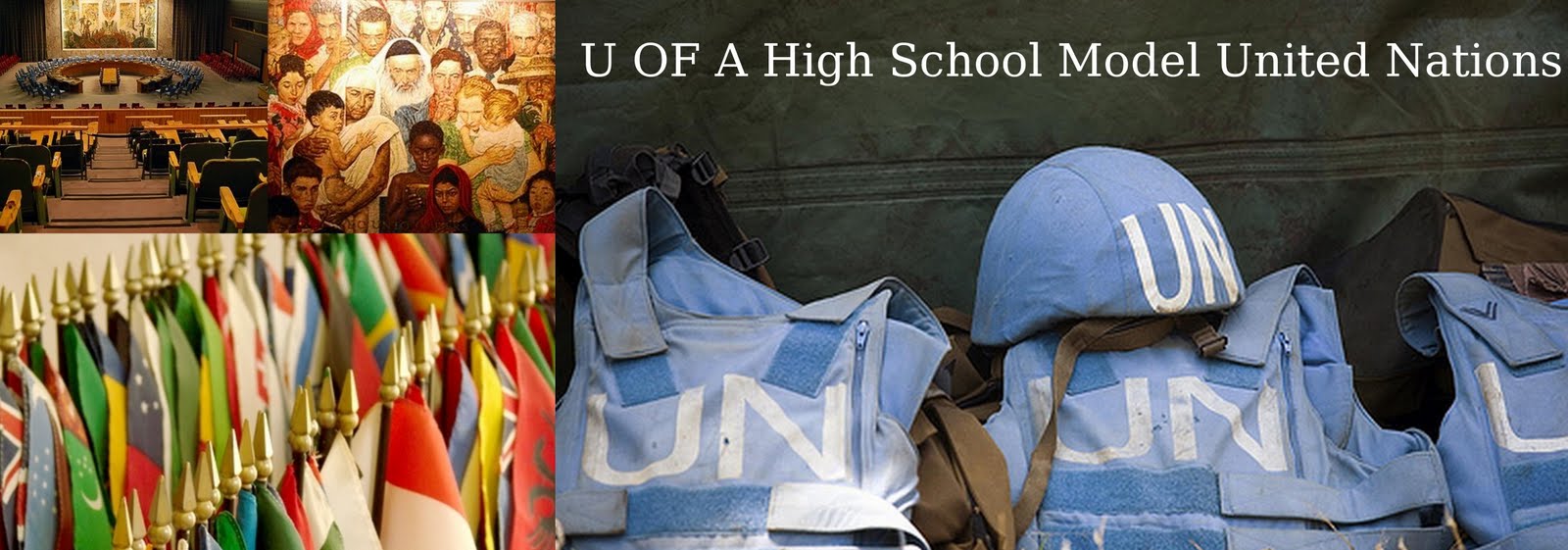As
registration gets under way in the next few weeks, many of you will likely have already decided on which committee you wish to join and are now merely waiting for a country assignment. Luckily, there is lots of non-country-specific research that can be done right now! I thought you might find it useful to see some of the sites I regularly look to when preparing these blog posts or looking for further information on topics we discuss in class, etc. These are all sites that you can access freely, although in the future we may see if we can distribute papers accessible only through the University. Please feel free to add any sites you find useful in the comments!
 Wikipedia
Wikipedia - Obvious, but if you know nothing about a topic it often points you in the right direction and has useful links
UN.org - Another obvious one. You can find information on committees, topics and sessions as well as links to key UN documents. Also check out the
UN News Service.
World Fact Book - Basic Country Briefings from the CIA. Similarly, the
US Department of State also has country reports plus topic briefings.
Economist.com - Covers a broad range of topics in an engaging manner (plus they have their own specially designed typeface for maximum readability!)
The BBC - I like the BBC because they create lots of additional features like interactive timelines that can bring you up to speed on a situation quickly
Reuters,
CBC,
Al-Jazeera,
New York Times,
Washington Post,
Globe and Mail,
MSNBC,
CNN, etc. - Choose at least one news outlet (or newspaper) and regularly check it. These sites all have search features so you can find related articles.
Google News - Or, if you're lazy and aren't picky about your sources, there is Google News which is useful for getting a wide range of opinions or takes on current events.
Foreign Affairs and
Foreign Policy - Two big American magazines which include the work of scholars, politicians and journalists to cover any number of subjects. Foreign Affairs contains much lengthier articles whereas FP tends to be shorter and their website is much more interactive.
International Crisis Group - Excellent reports on crisis regions
 World Politics Review
World Politics Review - Offers daily commentary on international affairs, national security and foreign policy (particularly US)
Global Policy Forum - GPF is a website that "monitors the work of the United Nations and scrutinizes global policymaking." Its wide range of articles provides thoughtful analysis and will help you to situate topics within global debate.
openDemocracy - Free articles on world issues, politics, etc.
Frontline - PBS hosts tonnes of 1 hour documentaries on a myriad of topics including the financial crisis, the war in Afghanistan, and Hugo Chavez

Think tanks such as
Brookings also have interesting articles covering American foreign policy in particular, although each has their own ideological slant. As do hybrid news sources like
The Huffington Post.
Hopefully you find some of these links useful as you begin to research your
topics. Read critically, with an eye towards which countries or viewpoints are being favored and you will be rewarded in debate!










